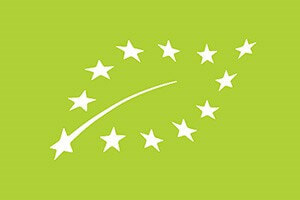|
Organic food is produced without the use of toxic pesticides containing heavy metals, insecticides, growth hormones and antibiotics. The organic food does not contain chemical preservatives or genetically modified organisms either. Furthermore, the application of irradiation, industrial solvents, or synthetic food additives is prohibited in food processing for making packaged organic foods. If a food product is labelled as organic, then its cultivation or raising in the case of animals should be following certain farming standards and methods. The appropriate application of these farming standards is checked yearly by auditing bodies and a certification is awarded to the farmer or grower. Certified organic food production system is a heavily regulated system and it is not an easy matter as some may believe Only then the farmer or grower can use the word ’organic’ on a food product label of theirs. In Europe, this is further establised and materialised by placing the Organic Leaf logo made by stars on the packaging as shown below along with a code related to certification body in the corresponding country. Organic food never contains GMOContinue on What does organic mean?According to the European Union legislation, the aim of organic food production is to use practices and methods of farming which protect the environment: soil, water, plants and animals and farmers and growers.
In order to maintain soil fertility and plant and animals free from diseases, various approaches are used, namely:
Such is the impact of conventional farming and agriculture that traces of toxic pesticides have been found in small rivers across all Europe, and in US, pesticide residues are in 70% of produce sold (Guardian, 29/05/19). According to the same source in September 2016, it was mentioned that humans have destroyed a tenth of Earth's remaining wilderness in the last 25 years through various ''human'' activities. The weedkiller Round up-glyphosate will never ever be used in organic farming and cultivation, as it is a synthetic toxic and carcinogenic chemical and serious contaminant of the soil and water, including underground water reserves. Organic farming practices never contaminate the soil or waters. European Union organic farming rules cover agricultural products, including aquaculture and yeast. They encompass every stage of the production process, from seeds to the final processed food. This means that there are specific provisions covering a large variety of products, such as: • seeds and propagating material such as cuttings, rhizome etc. from which plants or crops are grown; • living products or products which do not need further processing; • feed; • products with multiple ingredients or processed agricultural products for use as food. EU regulations on organic production exclude products from fishing and hunting of wild animals but include harvest of wild plants when certain natural habitat conditions are respected. There are specific rules for wine and aquaculture too. Source: organicekiosk.com Comments are closed.
|
Archives
January 2023
Categories
All
|

 RSS Feed
RSS Feed
